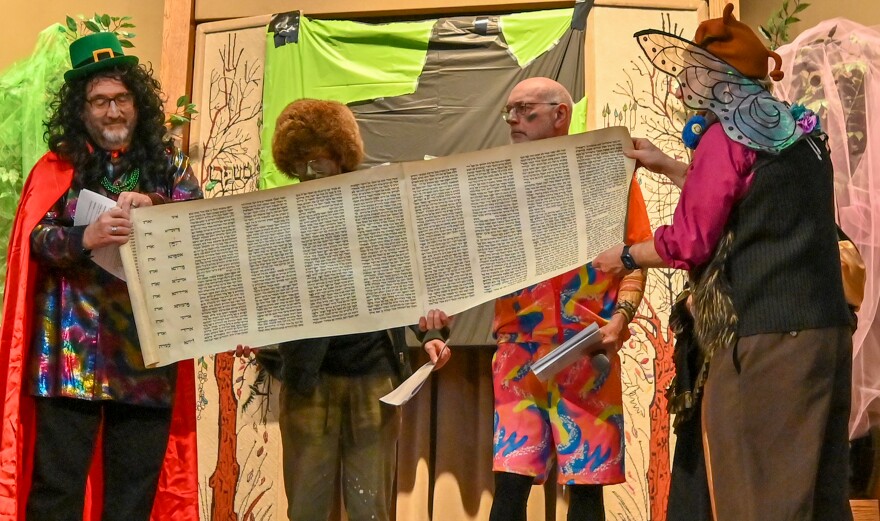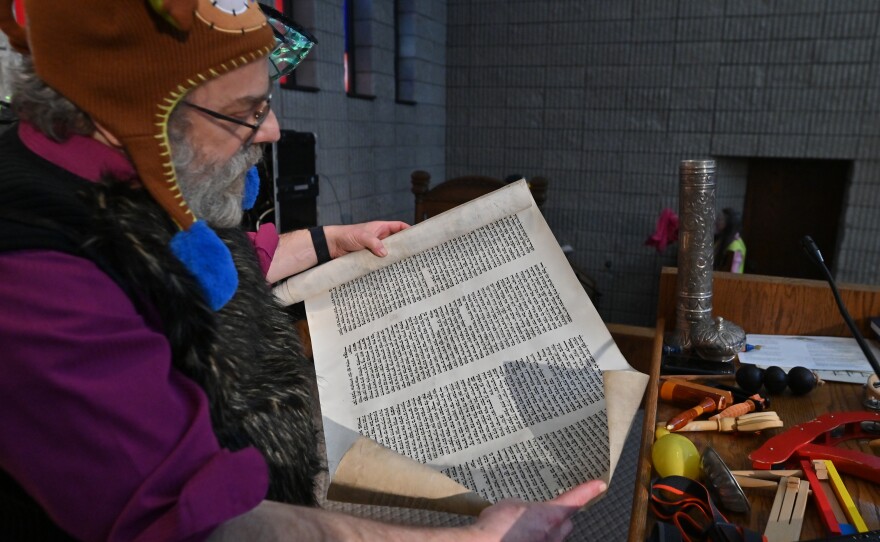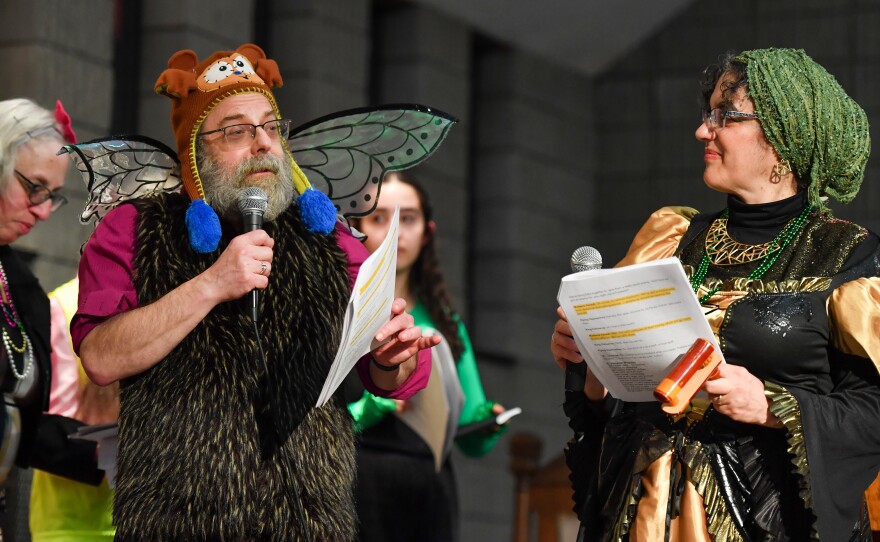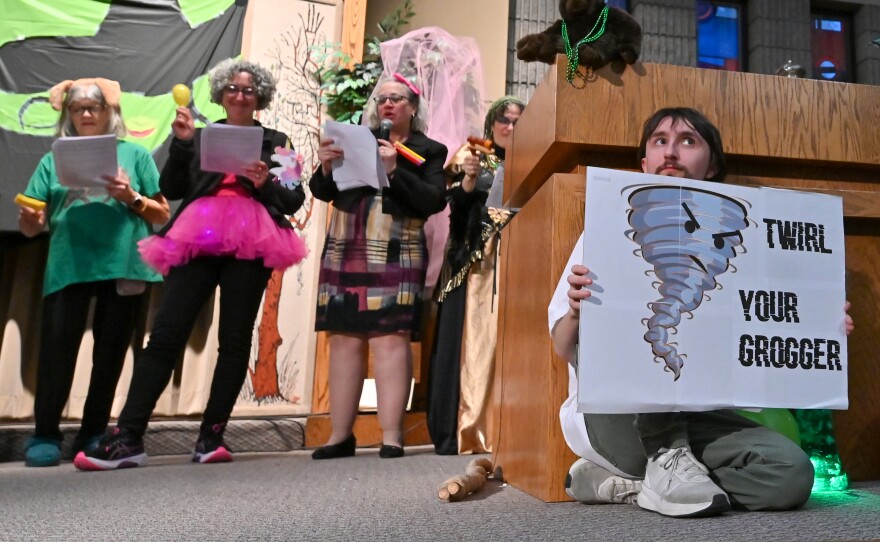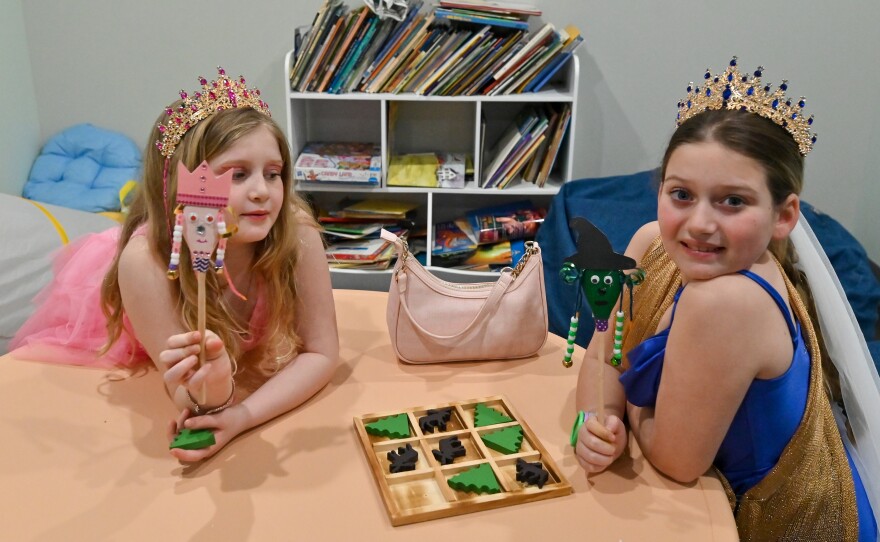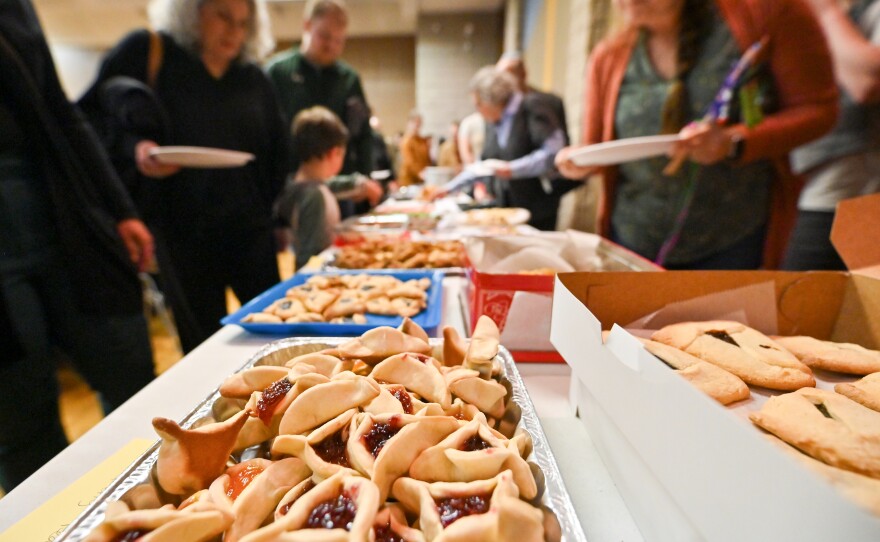On the platform in the prayer hall of Temple Hesed a cast played characters from the Hebrew Book of Esther with a "Wicked" and "Wizard of Oz" twist.
They called it "WickedSpiel: The Untold True Story of Shushan."
Rabbi Daniel Swartz played the villain, Flying Hamonkey.
Cheryl Freidman in a emerald green ball gown was Esther-ba, a spin on Elphaba from "Wicked" combined with the story's hero, Esther. Gary Rozman played ScareCrowdecai, the scarecrow combined with Mordecai, Esther’s cousin and another hero in the Purim story.
"The movie ("Wicked") really is so in sync with the ideas behind Purim, and it's a lot of fun," Swartz said.
Purim celebrates the story of Esther, a Jewish woman in Persia, and Mordecai, who saved their people from genocide at the hands of the villain, Haman. Each year, the Jewish temple in Scranton retells the story from Hebrew Bible in a contemporary way.
Purim began at sundown on Thursday. The holiday lasts around 24 hours. Temple Hesed celebrates it on the weekend so that people of all backgrounds can join in.
Purim is the most lighthearted of Jewish holidays, Swartz said.
"Like a lot of spring holidays like Mardi Gras and Holi and Nowruz in the Persian culture, it's really about rejoicing," he said.
"Spiel" is Yiddish for play or skit. And it's a tradition in synagogues and Jewish communities to create comedic verses and skits to retell the story of the Jews' triumph over Haman.
Swartz wrote the script and changed lyrics to pop songs, tunes from Broadway and "The Wizard of Oz" to reflect not only the story's message but also current events.
There was mention of DOGE. Except not the current Department of Government Efficiency but rather the Department of Generating Excitement.
Instead of spelling out HOT TO GO, like in the popular Chappell Roan song, the cast and audience sang and spelled Shushan with their arms. That was the capital of Persia where the story takes place.
"Popular" from "Wicked" was changed to "Unpopular" and the lyrics were written from Haman's perspective.
"Unpopular — Let's make Jews unpopular. We'll stop all their funny prayers. How they put on airs," Haman sings. "Yes it's time for them to go."
There are always traditional aspects to the celebration. Three blessings were given and Swartz unraveled the temple’s Megillah, or scroll of Esther, and Suzy Kalman read some of the scripture in Hebrew before the spiel.
A hero's journey
The story begins when the Persian King Ahashueus casts out his wife. He then marries Esther, who unbeknownst to him is a Jew. Her cousin, Mordecai, foils a plot to kill the king and wins his respect. But afterwards the king promotes Haman and places him above all other officials.
Haman convinces the king to destroy all the Jews. Queen Esther, unsure at first, reveals herself and asks the king for mercy for her people, even though she knows she might die. Esther and the Jews are victorious. Haman is impaled on a stake that was meant for Mordecai.
"Purim records an almost tragedy that didn't happen, and so we just rejoice about it, but it's also about standing up to bullies, you know, so not being afraid," Swartz said.
One Purim tradition is to yell and spin noisemakers — called groggers — whenever Haman’s name is mentioned during a retelling. The prayer hall filled with boos, symbols, knocking and whirling sounds.
Another custom is to serve, Hamantaschen, a triangular filled-pocket pastry. The word means Haman's ears in Hebrew.
The holiday is celebrated in costume. Last year Temple Hesed put on a Barbie- and Taylor Swift-themed performance.
“Everybody has their moments of fear and hiding, and then they come out. And so part of the costuming is really about this idea of, who are we, who's hidden within us, and and can we bring out a hero? Can we bring out a villain? You know, what's, what's going to happen when we're under pressure," he said.
Swartz said he hoped that people left the performance knowing that it’s okay to be cheerful when addressing a serious subject.
"We need some of that to be able to have the energy to make the kind of changes we need to make," he said.

